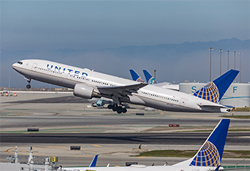Regularly Scheduled Air Carriers (Part 121)
 The Federal Aviation Administration (FAA) grants the authority to operate scheduled air service in the form of a Federal Aviation Regulations (FAR) 121 certificate. Air carriers authorized to operate under a Part 121 certificate are generally large, U.S.-based airlines, regional air carriers, and all cargo operators. All Part 121 air carriers are required to have an FAA-approved hazardous materials (aka dangerous goods) program. Air carriers who elect to accept, handle, and transport dangerous goods in air commerce are required to develop a complete and detailed hazardous materials program covering all aspects of the acceptance and transportation process, as well as training for all employees.
The Federal Aviation Administration (FAA) grants the authority to operate scheduled air service in the form of a Federal Aviation Regulations (FAR) 121 certificate. Air carriers authorized to operate under a Part 121 certificate are generally large, U.S.-based airlines, regional air carriers, and all cargo operators. All Part 121 air carriers are required to have an FAA-approved hazardous materials (aka dangerous goods) program. Air carriers who elect to accept, handle, and transport dangerous goods in air commerce are required to develop a complete and detailed hazardous materials program covering all aspects of the acceptance and transportation process, as well as training for all employees.
Regulations outlining the acceptance, handling, and transport of dangerous goods and required training are found in the Federal Aviation Regulations (14 CFR), the Hazardous Material Regulations (49 CFR Parts 100-185), and the ICAO Technical Instructions for the Safe Transportation of Dangerous Goods by Air. Compliance with the regulations is mandatory for all Part 121 air carriers.
In addition to the regulations and guidelines issued by FAA Flight Standards, Part 121 air carriers work closely with the FAA Office of Hazardous Materials Safety to develop, maintain, and implement approved hazardous materials programs. Hazardous Materials Aviation Safety Inspectors (HMASIs) regularly inspect Part 121 air carriers at multiple locations throughout the U.S. and its territories, and identify any regulatory violations, process and procedural findings or program deficiencies. Some of the largest Part 121 air carriers who accept, handle, and transport hazardous materials have Principal Hazardous Materials Inspectors (PHIs) assigned to their certificates who closely oversee their Hazardous Materials Programs.
